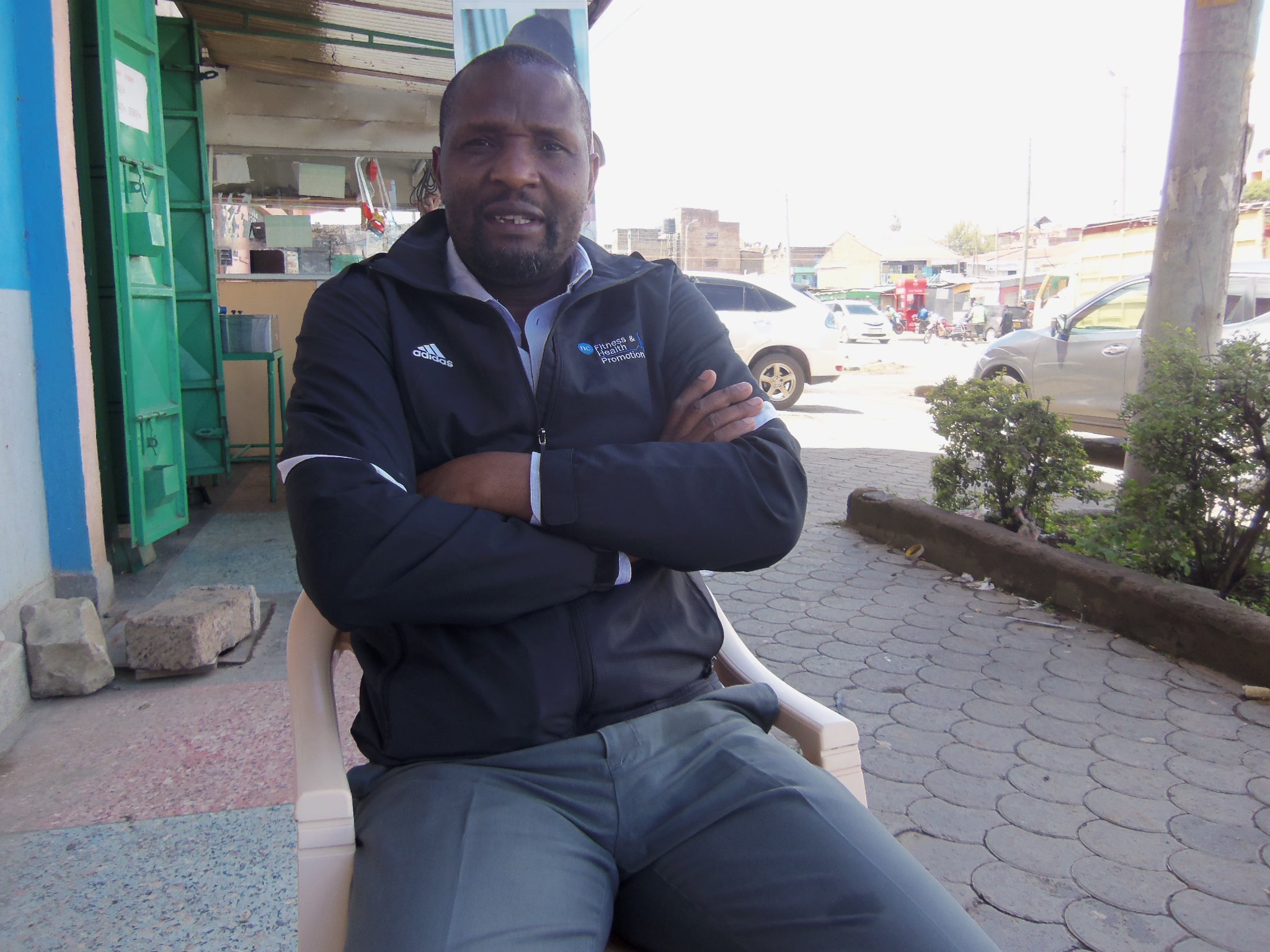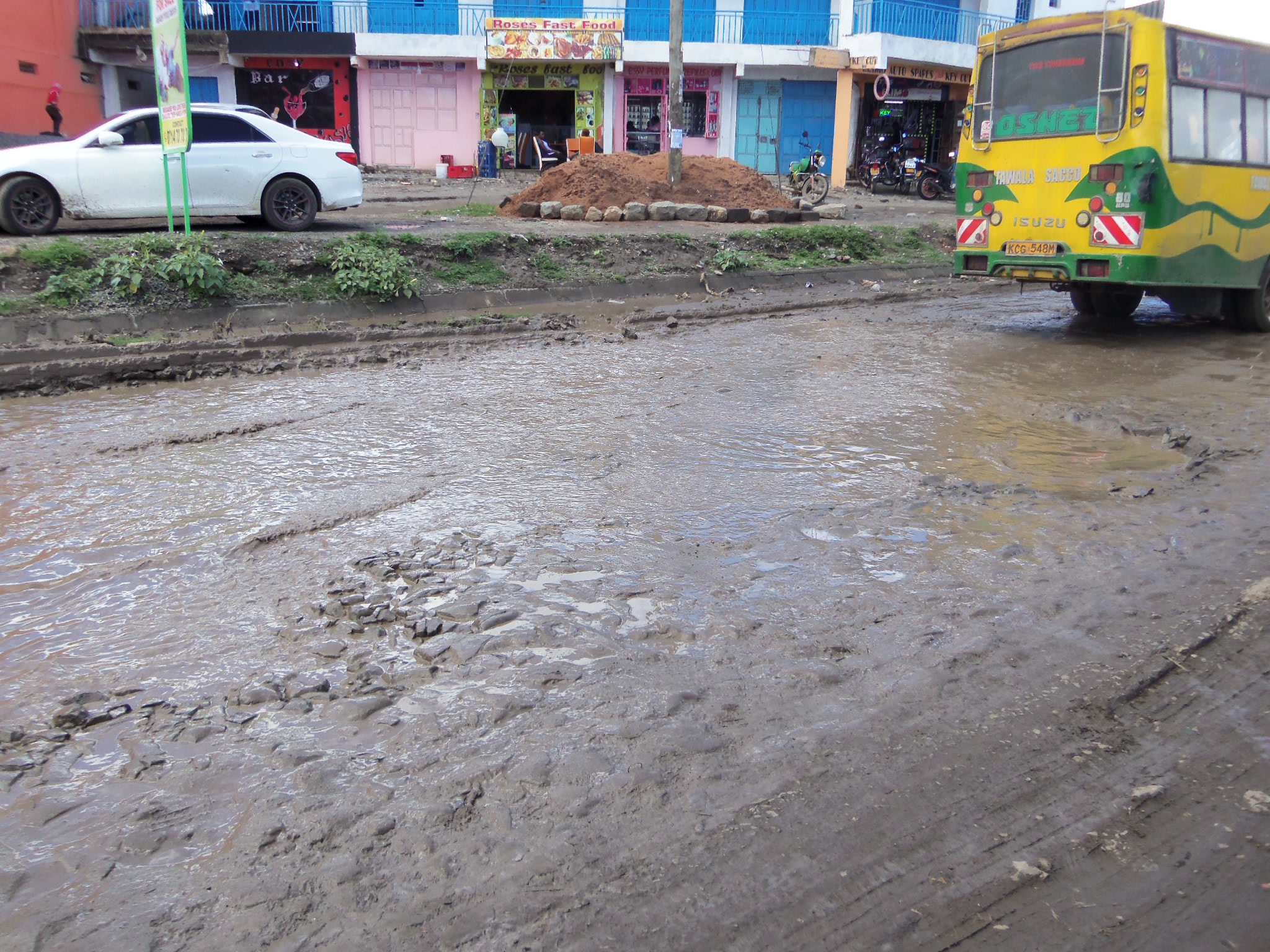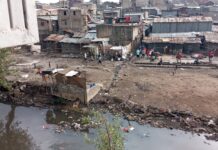By Sharon Kiburi
Machakos County, Kenya – Zacharia Wasike is worried that children in Kincar, Machakos County cannot afford to smile, as many are shy about exposing teeth discoloured by borehole water high in fluoride content.
The situation is so grim in this part of the county that children are refusing to smile as they fear exposing their stained teeth (dental fluorosis) to visitors.
Most of the children have stained teeth. Wasike says the high fluoride content in groundwater is crippling entire generations. Kincar has a population of 30,000 adults, and two significant schools have a capacity of about 1000 and 2000 for the other schools.

Zacharia Wasike/Sharon Kiburi.He says his county is now full of children ashamed of showing stained teeth. “Our children are affected health-wise due to the discoloured teeth; they appear to lack confidence, and in the long run, they could struggle with getting opportunities in specific jobs,” Wasike says.
Wasike, who has been a resident of Kincar since 2006, is deeply bothered by the absence of clean and fresh water. “When we first arrived, the area was still in its early stages, with few infrastructure and amenities, ” he says.
“We are still struggling for basic needs such as clean, consumable water, 17 years later,” notes Wasike.
Most families consume borehole water because they cannot afford to buy distilled water for daily use. “Buying water is strenuous; we are already buying water from the borehole distributors; adding an extra cost to acquire fresh distilled water is unmanageable,” says Wasike.
“Unfortunately, my children are victims of the bad water, and it is costing me an arm and a leg to try to rectify the effects with the help of dentists.” The situation worsens because the existing private schools cannot offer fresh water for the growing number of pupils.
All efforts to improve access to clean water for the children have repeatedly failed. Wasike adds: “I would say there is some sluggishness in the Machakos County government’s response to the local water crisis.”
He says this is upsetting the locals, who depend on their political goodwill to support the neighbourhood.
Medical experts say fluorosis is a painful and crippling disease for its victims. They say high fluoride in the body starts depositing on the bones, and as fluoride deposition increases in bones, calcium starts to decrease, making bones brittle.
Borehole water is highly impalatable, with a chloride level above 250 mg/l, which gives drinking water a salty taste, posing a significant danger of disease outbreaks.
Because there is no government-supplied water in Kincar’s, the water supply relies heavily on private borehole water.
“To the best of my knowledge, this area’s drinking water has a lot of fluoride chemicals, which easily manifest in the teeth of children growing up in the area,” says Wasike.

Adding to that, the concern is whether the water offered here fulfills the essential requirement of 0.7 milligrams per liter (mg/l) regarded as fit for drinking.
WHO has set the fluoride guideline value of 1.5 milligrams per litre (mg/l) for drinking water, beyond which fluoride starts to show adverse human health effects.
According to the Aga Khan University Hospital in Nairobi, tooth discolouration is common in adults and children. This happens for several reasons and may affect the surface of the teeth or below the enamel (outer part), while some people develop both types of pigments.
Studies by experts at this hospital show how the distinct colours shift to aid in determining the cause of the stain.
Stories abound of how most people who once had clean, white teeth now have developed brown stains.
“This area has always had water scarcity since I moved here some seven years ago,” says Stephen Mulei, 23, a Kincar resident.
“I earn a living from selling water I buy from borehole suppliers. I have noticed since I started living here that my two front teeth have discoloured.”
Says Charles Macharia, another resident of Kincar: “The teeth of my lastborn, who is 16 years old, have changed colour to brown. I personally have problems with my teeth, too. All the problems with my teeth started when I started living here.”
Most people in Machakos barely survive and cannot save enough to buy bottled water or a rainwater storage tank.
The county has 22 boreholes supplying water, but the government of Machakos County has failed to provide them with fresh water.
Consumption of borehole water, high in fluoride content, is largely to blame for the staining of the teeth. Children and the elderly are more susceptible to the health crisis brought about by the high fluoride content in water.
While fluorosis has become a public health issue in these affected counties, private companies selling bottled water are profiteering and making private gains.
The companies have increased deliveries to these areas. But many people here are too poor to afford to buy water for their children in school and for their own consumption.
Fluorosis has crippled the livelihoods of people in these counties. Buying bottled water has brought more costs to them.
The government and county administration are aware of the sufferings of people in the fluoride-affected counties but seem to lack technical solutions to address the woes.
The people of Kincar, Machakos, and other surrounding areas are holding on to hope that one day this issue will be sorted.














